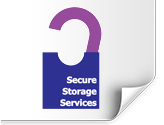Pros and Cons of Cloud Storage Back

Cloud storage has moved far beyond being a “new technology”. Today, it underpins business continuity, remote working, AI-driven workflows, and even sustainability strategies. Whether you’re a small business or a multinational, cloud storage is likely playing a role in your daily operations.
But is it all upside? Like any technology, cloud storage has its clear advantages and disadvantages, strengths and weaknesses, as well as benefits and drawbacks that you should weigh carefully before committing.
This guide, fully updated for 2025, explores both sides, including the latest trends such as AI in data management, enhanced encryption, and sustainability considerations.
What Is Cloud Storage?
Cloud storage is a form of Infrastructure as a Service (IaaS) where your data is stored on remote servers and accessed via the internet. Instead of relying solely on physical hard drives or on-premises servers, you ‘rent’ storage from providers such as AWS, Microsoft Azure, or Google Cloud.
This shift allows businesses to:
-
Eliminate capital expenditure on physical storage hardware.
-
Scale storage capacity up or down as required.
-
Enable employees to access files from anywhere with an internet connection.
?
The Advantages of Cloud Storage
1. Improved Disaster Recovery (DR)
With cloud storage, your files are mirrored across multiple data centres. If your office systems fail, your data remains safe and recoverable. Providers often include automated backups, reducing both risk and manual effort.
2025 update: AI-powered recovery tools now predict potential data failures and reroute backups pre-emptively, slashing downtime and recovery costs.
2. Anywhere, Anytime Access
No matter where you are, you can log in to your files with just an internet connection. This global accessibility supports remote work and collaboration, allowing employees to co-edit documents in real-time (e.g. Google Drive, Microsoft 365).
3. Cost Efficiency
Cloud storage reduces or eliminates:
-
Server infrastructure costs
-
Physical storage facility expenses
-
Specialist staff overheads
-
You pay for what you use, avoiding under- or over-investment.
2025 update: Sustainability regulations are pushing vendors to improve energy efficiency. Many now pass these savings to customers through greener, more cost-effective storage plans.
4. Scalability and Flexibility
Need an extra 10TB for a seasonal campaign? Scale up instantly. Experiencing a quiet quarter? Scale back down. Cloud providers’ pay-as-you-go or tiered pricing models make it easy to adapt to business fluctuations.
5. Enhanced Security
Leading providers now deliver enterprise-grade security out of the box, including:
-
End-to-end encryption
-
Multi-factor authentication
-
Continuous monitoring with AI anomaly detection
2025 update: Post-quantum encryption standards are being rolled out across major providers, future-proofing data security against emerging threats.
The Disadvantages of Cloud Storage
1. Reduced Control and Customisation
Your storage setup is largely dictated by the vendor. Larger enterprises may struggle with limited customisation for industry-specific compliance or niche workflows.
2. Locked In
Migrating terabytes of data to a different provider can be complex and costly – a challenge known as vendor lock-in.
2025 update: Some providers now offer ‘multi-cloud’ or hybrid solutions to ease migration, but switching remains far from frictionless.
3. Dependence on Internet Connectivity
No connection means no access. Slow or unstable internet can severely hamper productivity. Outages, while rare, can be catastrophic.
Recent example: Microsoft Azure’s 2024 outage grounded flights and disrupted hospital systems, a reminder of reliance risks.
4. Security and Privacy Concerns
Entrusting sensitive data to a third-party introduces inherent risks. High-profile incidents – such as OVHCloud’s Strasbourg fire in 2021 – highlight that even major players are not immune.
While providers continually strengthen security, responsibility for compliance (GDPR in the UK and EU) remains shared.
5. Contractual Restrictions and Hidden Costs
Some providers tie customers into long-term agreements with inflexible pricing. Others charge steep fees for data transfer, backups, or premium support.
2025 Cloud Storage Trends You Should Know
-
Sustainability: Providers are building carbon-neutral or carbon-negative data centres to meet climate targets.
-
AI and automation: From predictive maintenance to auto-classification of files, AI is reshaping how we store and retrieve data.
-
Hybrid & multi-cloud models: Businesses increasingly spread data across multiple vendors to avoid lock-in and boost resilience.
-
Edge storage: Data stored closer to the point of use reduces latency for IoT and real-time analytics.
?
FAQs on Cloud Storage
What are the biggest benefits of cloud storage in 2025?
Flexibility, AI-enhanced security, sustainability savings, and global accessibility.
What are the main drawbacks?
Vendor lock-in, internet dependency, and reduced customisation.
Is cloud storage secure enough for sensitive data?
Yes, when paired with strong encryption, multi-factor authentication, and compliance with GDPR/ISO standards. Businesses should still implement their own additional security policies.
How does cloud storage compare to on-premises storage in cost?
Cloud storage typically offers lower upfront costs and predictable monthly fees. However, high data transfer or retrieval volumes can erode savings.
Can cloud storage help with sustainability goals?
Yes, providers now publish carbon reports and offer green storage plans. Outsourcing storage often reduces an organisation’s direct energy use and emissions.
Conclusion: Do the Benefits Outweigh the Risks?
In 2025, the biggest benefits of cloud storage (scalability, security, cost efficiency, and AI innovation) continue to outweigh the drawbacks for most businesses. However, understanding risks such as vendor lock-in and internet reliance is crucial before making a full migration.
Cloud storage is no longer a nice to have. It’s a strategic enabler for resilience, sustainability, and competitiveness.


 Based in Liverpool and Wirral, we provide document storage, scanning and shredding services nationwide.
Based in Liverpool and Wirral, we provide document storage, scanning and shredding services nationwide.

